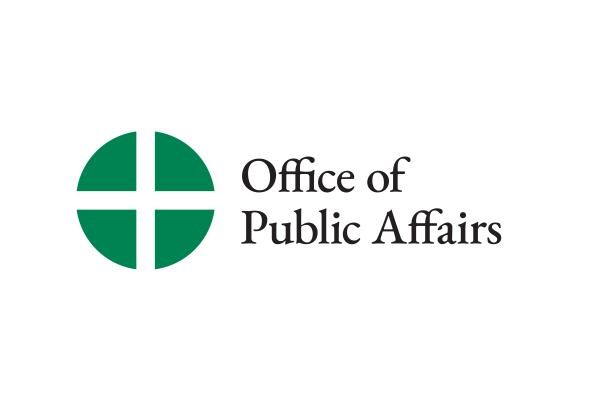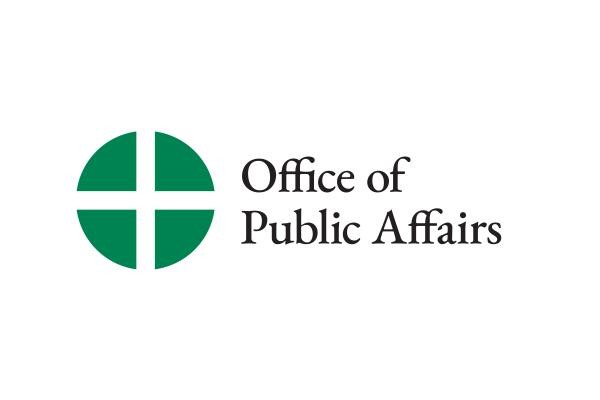Mid-Atlantic Catholic-Muslim Dialogue Nears Completion of Interreligious Education Guides
WASHINGTON— Representativesof the Mid-Atlantic Catholic and Muslim Dialogue have brought to nearcompletion their multi-year project of two guides entitled Understanding Islam: A Guide for Catholic Educators and Understanding Catholicism: A Guide forMuslim Educators.
WASHINGTON— Representativesof the Mid-Atlantic Catholic and Muslim Dialogue have brought to nearcompletion their multi-year project of two guides entitled Understanding Islam: A Guide for Catholic Educators and Understanding Catholicism: A Guide forMuslim Educators. While final edits will be performed by individualdrafting committees, the dialogue participants anticipate that this projectwill be complete before the group reconvenes in 2013.
Themeeting, which is co-chaired by Dr. Talat Sultan of the Islamic Circle of NorthAmerica (ICNA) and Bishop Barry Knestout, auxiliary bishop of Washington, D.C.,was held April 11th and 12th at St. Paul's North American College inWashington.
Thedraft version of Understanding Islam: AGuide for Catholic Educators was presented at the plenary session by main contributorSandra Keating, Ph.D., of Providence College. The document, which is intendedto serve as an introduction to Islam for Catholic educators, provides aninterpretation of Islam that is faithful to how individual Muslim educatorsunderstand and teach their religion. Overall, the document provides a briefhistorical survey of Islam, as well as a description of the holy Qur'an, therise of the Ummah and Shar'ia law, including its five pillars, and a briefconsideration of contemporary issues.
Thisdocument was well-received by the Muslim participants who offered the followingsuggestions to help bring the paper to completion. First, historicalinaccuracies need to be corrected and terminological alternatives that are morefaithful to the meaning of the Qur'an need to be included. Second, Dr. MuhammadAbdul Jabbar and Dr. Zahid Bukhari urged that the final document will need tode-emphasize its historical tone and incorporate more core Islamic values thatcommunicate an accurate vision of Islam as a dynamic and living tradition forthe world.
Thedraft version of UnderstandingCatholicism: A Guide for Muslim Educators was presented via teleconferenceat the plenary session by Shaykh Aboor Rahman Khan, the main contributor to thedocument. This document describes some of the central tenets of the Catholicfaith, as well as the basic differences between Catholics and other Christians.It also provides an historical retrieval of the origins of the faith, thebeginnings and growth of the church, and the basic beliefs, ethics, and worshiplife of Catholics.
Whilethis document was received positively by the Catholic participants, they encouragedtheir Muslim colleagues to strive to convey better to their Muslim audience amore faithful rendering of the central doctrinal notions of Incarnation and theTrinity as Catholics understand these. Catholic participants noted that thedocument provides a reading of Catholicism that is more faithful to theQur'anic interpretation of Christianity. Such a method of interpretation, it wasstressed by the Catholic participants, seriously compromises a truly Catholicunderstanding of Catholicism.
Bythe end of the session, both drafting committees produced their final comments oneach other's project and have agreed to work together in the coming months tobring the respective documents to conclusion.
BishopKnestout summed up the overall agenda for this work saying: "It is my hope that theguides on inter-religious education will be of practical help to educators andthe lay faithful of each community in speaking to their own students about theteachings and practices of the other faith community. These materials shouldensure a respectful and accurate presentation of the beliefs and practices ofboth Catholicism and Islam."
In addition to the co-chairs, the Muslim representatives at themeeting included ICNA president Zahid Bukhari, Ph.D.; Shaykh Abdur Rahman Khan,resident scholar, Islamic Foundation Villa Park, Chicago; NaeemBaig, Ph.D., executive director, ICNA Council for Social Justice; MuhammadAbdul Jabbar, Ph., of Bayshore, New York; Muhammad T. Rahman, secretary generalof ICNA; Khursid Khan, Ph.D., principal of MDQ Academy, Bayshore, New York; andIshtiaq Gondal, Ph.D., professor of Islamic studies, Punjab, Pakistan.
Additional Catholic representatives included Al Grindon,Immaculate Heart High School, Altadena, California; Rev. Dr. Sidney Griffith, chairmanof the Institute of Christian Oriental Research, The Catholic University ofAmerica (CUA); Pim Valkenberg, Ph.D., professor of religion, CUA; SandraKeating, Professor of Religion, Providence College; Paulist Father Tom Ryan, ,ecumenical and interreligious officer, North American Paulist Center,Washington; Kirsten Evans, program specialist, Secretariat of Ecumenical and InterreligiousAffairs (SEIA), U.S. Conference of Catholic Bishops (USCCB); and AnthonyCirelli, Ph.D., associate director, USCCB SEIA.
---
MEDIA CONTACT ONLY:Don ClemmerO: 202-541-3206Email


